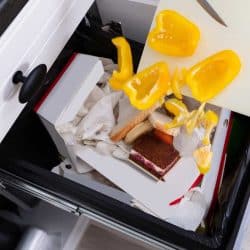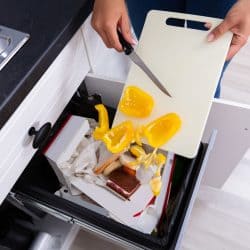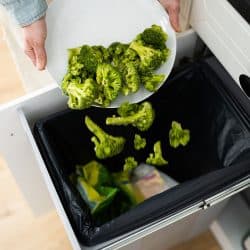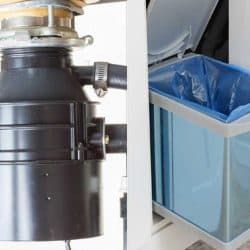Trash compactors are functional appliances that will help you reduce the waste output of your home and significantly reduce your carbon footprint. Perhaps you are interested in purchasing a trash compactor for your house and find yourself wondering what the standard measurements are? We've researched these questions and have found well-referenced information to share with you!
The standard size for a trash compactor designed for residential use ranges in width from 12 to 15 inches, height from 34-1/8 to 35 inches, and depth from 24 to 24-1/2 inches. Generally, these appliances are available in two different model formats, freestanding or under-the-counter units.
Are you interested in learning more about trash compactors? Specifically, the dimensions of these appliances to ensure that you choose the correct model for your household? Perhaps you are wondering if owning a trash compactor warrants the financial investment? Please continue reading; we have a lot of helpful information for you!

How wide is a garbage compactor?
The average residential trash compactor's width ranges from 12 to 15 inches. Whether the compactor is freestanding or an under-the-counter unit, it will require an 18-gallon compactor bag for the 15-inch width trash compactor, and those bags will work for 12 inch wide units as well.
If you are considering purchasing a trash compactor, be sure to measure the available space in your home before you start researching available units because these appliances vary in size and available features. Also, before you decide to purchase, spend a week or two monitoring your average waste output to determine the ideal size for your household.
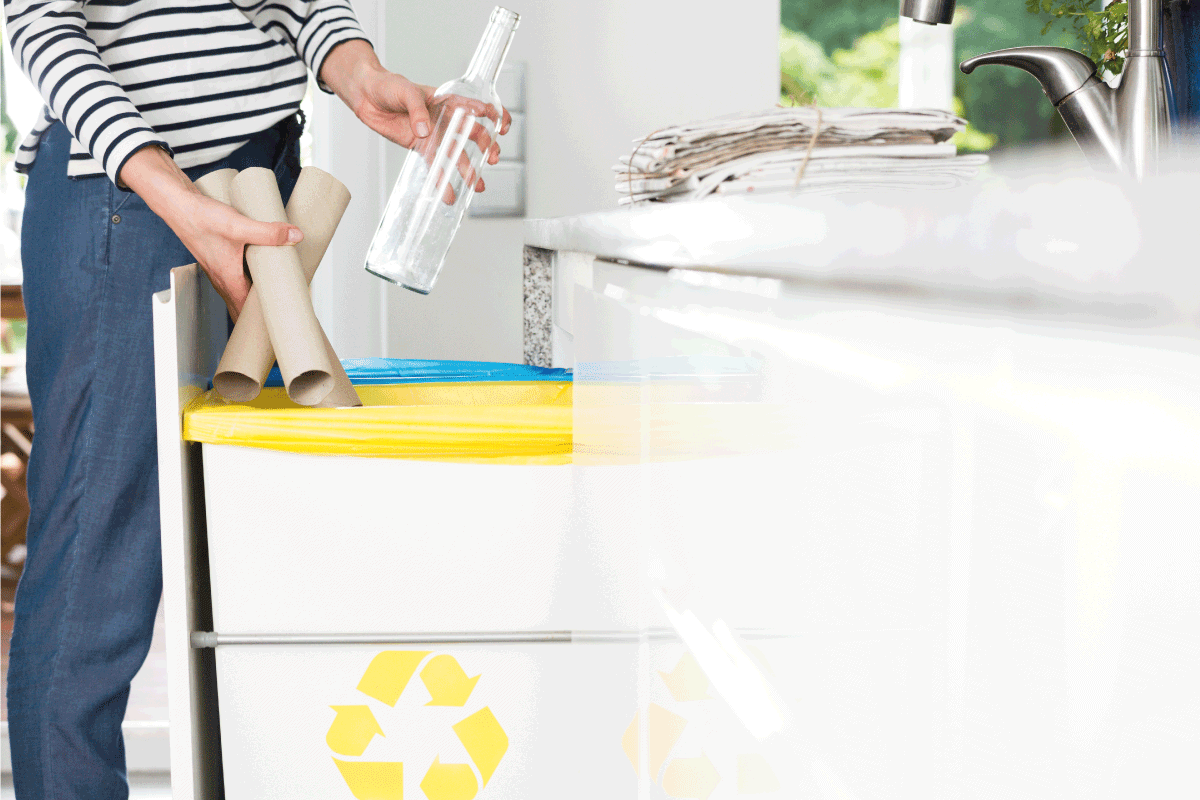
Word of advice-trash compactors generate a fair amount of noise while running, and careful consideration is required for where you decide to install the trash compactor is important for noise reduction and regulation especially, if you are noise-sensitive or have small children in the home.
Click here to view the stainless steel Household Essentials Trash Compactor on Amazon.
This compactor is great for one-person households.
What size are compactor bags?
The average gallon capacity of a trash compactor bag is 18 gallons, and these bags are designed to fit most 12 to 15-inch wide gallon trash compactors. 18-gallon bags are deemed the universal standard for trash compactors. Carefully read the product description to verify the bags will fit your trash compactor properly.
Also, many brands manufacture 20-gallon bags and off-brand varieties that are 13 to 25 gallons. Some bags are designed to be fastened shut with zip ties included in the box, while others are complete with handles for easy removal. Other brands offer bags designed to be tied at the opening with a drawstring instead of a zip tie.
Choosing the right bag for your trash compactor is one of the most important tasks for owning a trash compactor. Failure to use quality bags correctly will diminish the overall effectiveness of the appliance and could result in needing a replacement trash compactor sooner than later.
What can you put in a residential trash compactor?
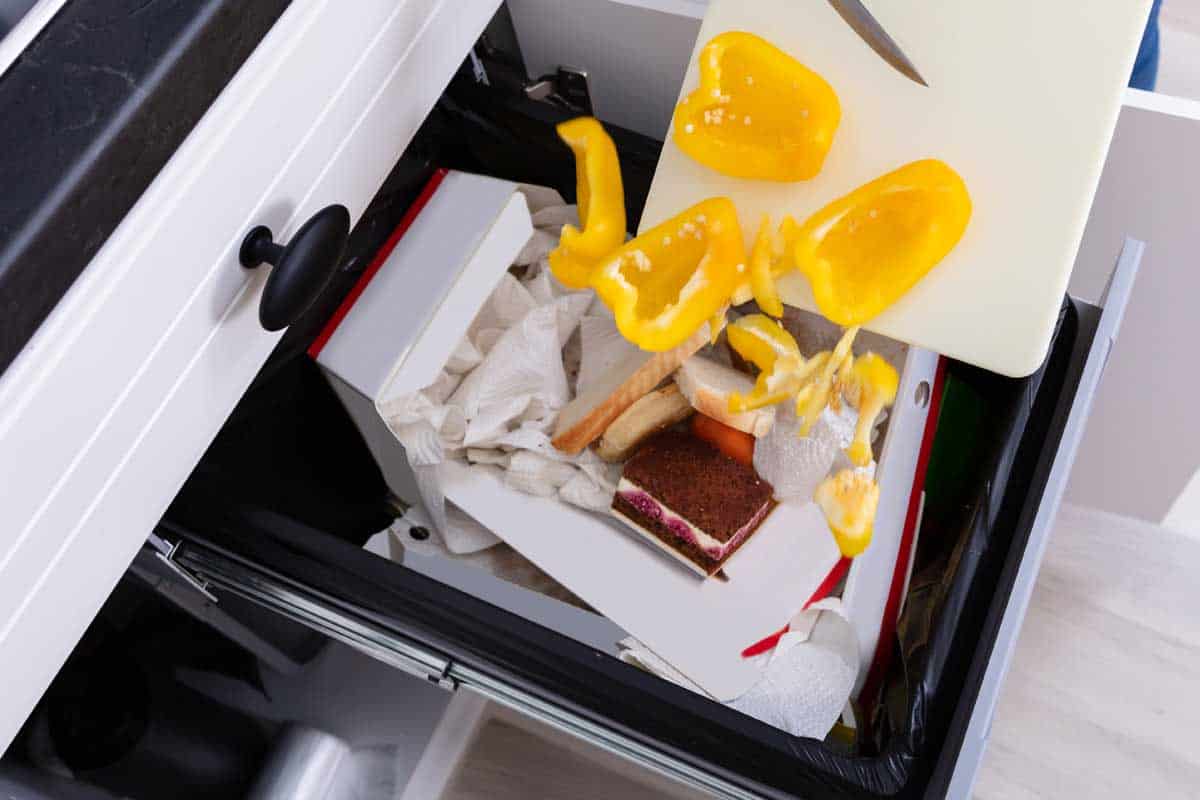
You can compact household trash, non-recyclable papers, plastics, sweepings, and wrappings. Also, you can compact recyclables before placing them into the recycling bin or delivering them to your local recycling center.
If you are unsure if your waste management center accepts compressed recyclables. Contact the recycling center or waste management company's customer service for further instructions.
What cannot be put in a residential trash compactor?
Never put the following items into the trash compactor:
- Raw fish or meat
- Grapefruit rinds
- Diapers
- Feminine hygiene products
- Fireworks
- Engine fluid cans
- Shotgun shells or cartridges for firearms
- Flammable materials, oily rags, gasoline, paint thinner cans
- Containers of explosive or toxic materials
- Aerosol cans
- Cigar and cigarette waste
Compacting raw meats, dirty diapers, or hygiene products will allow potentially harmful bacterias into your compactor that will create unpleasant odors and a breeding ground for germs and molds to flourish.
Also, when compressed, fireworks or any flammable materials carry the risk of starting a fire in your home that could lead to personal injury and property damage.
Are trash compactors worth it?
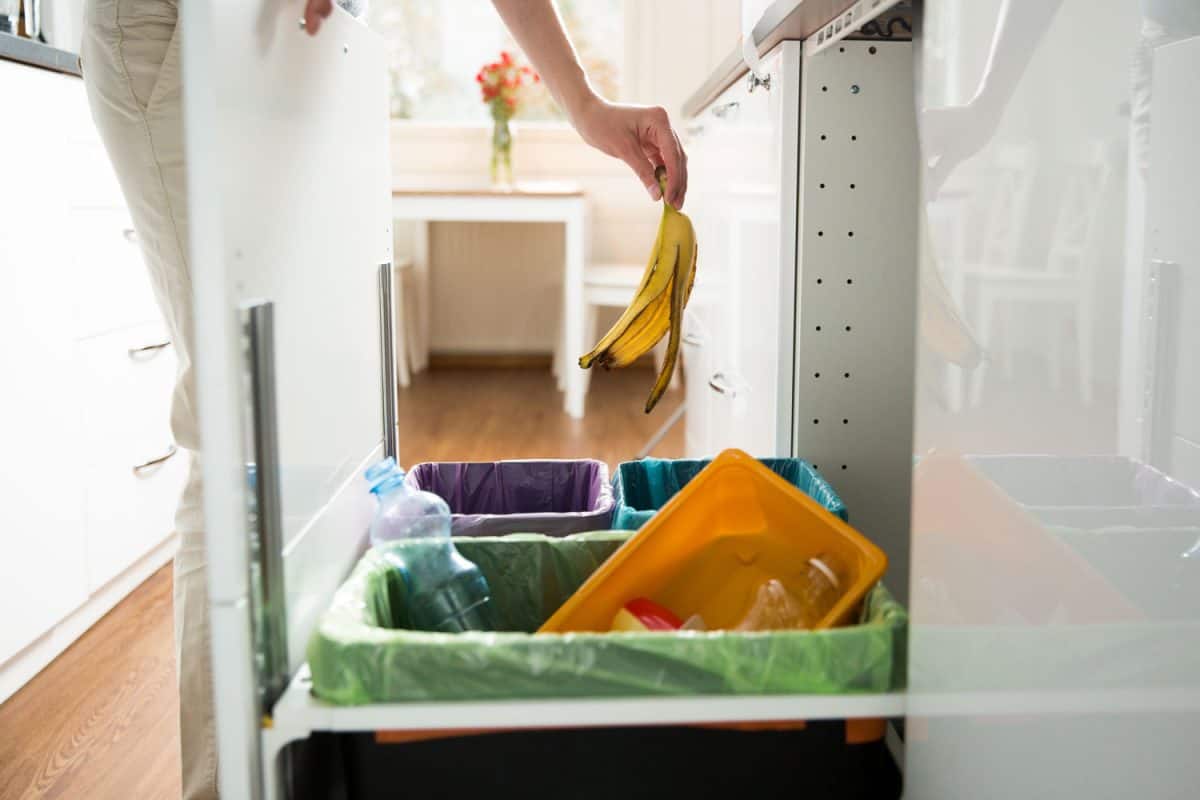
Garbage compactors do provide many benefits for busy households. Using a trash compactor regularly in your household can cut the volume of waste by 75% per year. This percentage is a staggering number. Not only will this appliance reduce the amount of space your garbage takes in the landfill. But it will also reduce how often you empty your trash cans and cut back on trips to the dumpster.
Trash compactors offer another helpful option: the possibility of crushing aluminum cans, cardboard boxes, and recyclable plastics to prepare the materials for the recycling bin or center. Reducing trash volumes and preparing your recyclables is how trash compactors reduce your home or office's carbon footprint.
Trash compactors can help save your hard-earned dollars because the mass of your trash will be dramatically minimized. Which could help reduce your home's trash removal costs or homeowner association fees for outdoor trash receptacles. Over time your trash compactor investment will pay for itself!
You may wonder what to do with your food waste that cannot be compacted or recycled? The vast majority of fruit and vegetable waste can be composted for flower beds and gardens. If you don't have space for an outdoor composter. Hop online and research your local area for community sustained compost sites where you could take your compostable waste products.
Additional thoughts
Owning a trash compactor does provide many benefits for your budget and the environment. Please remember that these powerful appliances generate great force to compact your trash. Always be mindful and practice proper safety precautions when operating your trash compactor. Consider keeping a pair of safety gloves clipped to your compactor for easy access.
Safety considerations for trash compactor ownership and usage
- Never place your hand inside the compactor when it is jammed
- Do not allow children or pets access to the interior of the trash compactor
- Wear gloves when changing the bags
- Unplug the compactor when changing the bags or performing any maintenance tasks
- Keep hair tied back or under a cap to prevent it from getting caught in the compactor
- Follow the manufacture's suggested maintenance routine
- Keep the trash compactor clean to prevent the growth of harmful bacterias and mildews
- Only use bags designed for trash compactors
- Please do not leave the trash compactor open when it is not in use
Precautions to keep your household safe
Do not overload the trash compactor. Doing so will generally break the appliances drawer or ram. If the drawer is stuck, do not force it to move. Wear safety gloves and look for what is causing the drawer to jam. If you cannot find the issue, contact a technician or the manufacturers' customer help center.
Do not store chemicals, gasoline, or any flammable materials near the trash compactor. The risk of chemical combustion via the liquids or vapors is present if near any type of electrical appliance. Trash compactors are not an exception to this rule!
Do not smoke near the trash compactor. Small bits of paper or other flammable waste materials are often present in or around the compactor that could easily catch fire.
If you install an under-the-counter unit, consider having a professional electrician examine the circuit and install the electrical components.
Suppose you are going on vacation; always empty your trash compactor before leaving to prevent moisture from building up inside the compactor while you are away from home.
Keeping your trash compactor clean is paramount for keeping it in the best working condition possible. Click here to read our article that details the necessary steps for cleaning your trash compactor.
In closing
Trash compactors, when used regularly, can significantly reduce your trash output and help prepare recyclables for the recycling center. Great news for Mother Earth, less trash going into landfills. We hope that this article has helped you develop an understanding of the sizes of trash compactors and the functional benefits these appliances offer households. Please visit kitchenseer.com soon for further educational content and culinary inspirations!
Before you go, please, be sure to check out some of our other posts to help further your knowledge base:
How To Remove A Built-In Trash Compactor In 4 Easy Steps
What Is The Standard Size Of A Pantry?
How To Fill Empty Floor Space In The Kitchen



![A woman throwing away sliced peppers in to the trash compactor, Do Trash Compactors Need Special Bags? [And How To Measure For Them]](https://kitchenseer.com/wp-content/uploads/2021/08/A-woman-throwing-away-sliced-peppers-in-to-the-trash-compactor-1-250x250.jpg)

